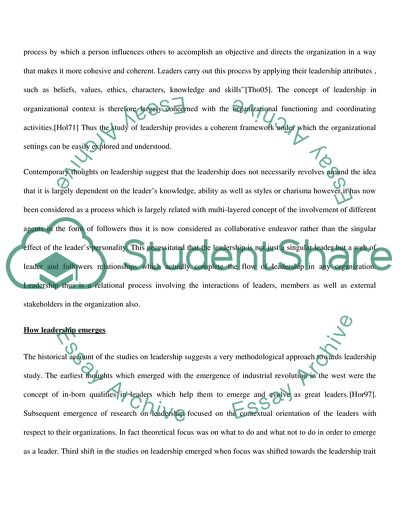Cite this document
(Origin of Leadership Essay Example | Topics and Well Written Essays - 2250 words - 2, n.d.)
Origin of Leadership Essay Example | Topics and Well Written Essays - 2250 words - 2. https://studentshare.org/social-science/1711625-leadership
Origin of Leadership Essay Example | Topics and Well Written Essays - 2250 words - 2. https://studentshare.org/social-science/1711625-leadership
(Origin of Leadership Essay Example | Topics and Well Written Essays - 2250 Words - 2)
Origin of Leadership Essay Example | Topics and Well Written Essays - 2250 Words - 2. https://studentshare.org/social-science/1711625-leadership.
Origin of Leadership Essay Example | Topics and Well Written Essays - 2250 Words - 2. https://studentshare.org/social-science/1711625-leadership.
“Origin of Leadership Essay Example | Topics and Well Written Essays - 2250 Words - 2”. https://studentshare.org/social-science/1711625-leadership.


